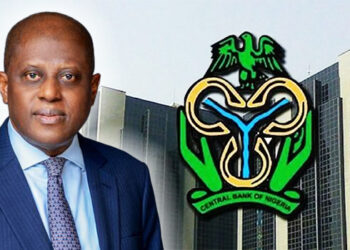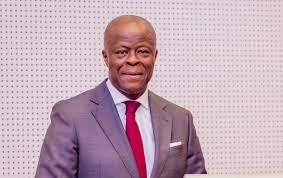The Central Bank of Nigeria (CBN) on Tuesday held the Monetary Policy Rate (MPR) anchor rate rate at which it borrows banks unchanged at 14 percent in a wait and see approach for the fiscal authorities to fully roll out their financing plan for the year.
The CBN’s monetary Policy Committee (MPC) also retained the cash Reserve Ratio (CRR) at 22.5 percent, the Liquidity Ratio at 30 percent as well as the asymmetric corridor around the MPR at +200 basis points and -500 basis points.
Godwin Emefiele CBN Governor said at the end of the meeting that members were reluctant to vote to lower rates at this time considering the surging impact it could have on inflationary pressure.
But some analysts see the development as conveying mixed messages, while concluding that the signal is that no immediate change in the much criticized foreign exchange rationed regime.
“For now, the only clear takeaway is that there are no imminent plans for further FX liberalisation. FX will continue to be rationed, with key sectors being prioritised. There are no immediate plans for a real policy tightening as such,” says Razia Khan of Standard Chartered bank, London.
Khan further observed that the, “key takeaway from the CBN’s MPC meeting was what was being signalled regarding future policy. Some element of mixed messaging appears to be creeping in.
On the one hand, we had a repeat of much of what we had heard last year: that the economy – although expected to recover – remains in a vulnerable position. Nonetheless, inflation is expected to decelerate on a pronounced base effect and better agriculture growth, and the CBN may even – at this meeting – have been signalling future policy easing yet to come.
However, the CBN also demonstrated that it is not immune to the criticism that money supply is running well above target, and to try to reassure on this front, the CBN has pledged to redouble efforts to bring narrow money growth back within its preferred benchmark range. The proof is likely to lie in what actually ends up happening to money supply growth. All of the data, including CBN financing of the government, will be carefully scrutinised going forward.”
Suleiman Abubakar, executive director, Finance and Strategy, Sterling Bank, said the CBN is ready to make changes but have to see some movement from the fiscal authority
Bismarck Rewane, renowned economist and managing director/CEO, Financial Derivative Company, said, monetary policy of the CBN is going to be more accommodating. It also said it is going to manage or control narrow money in 2017 because money supply increased to 19.02 percent. This is very important because intervention funds are narrow money while CRR is for M2, even if you have taken money out of the system and you are pumping in narrow money it will have significant effect on inflation.
Rewane further talked about the soundness of the banking system and the high impact of interest rates and non-performing loans in banking system. “This is the first time the MPC has taken that as a major consideration. So on one hand high interest rate could attract investment, however it is undermining the quality of assets,” he added.
Nigeria’s December inflation sustained an upward rise in December 2016 to 18.5 percent, having risen consistemlty since January.
There are also concerns around the economy which contracted for the third consecutive time third quarter of 2016 by 2.4 percent and had raised calls for rate raise cut to boost growth.
But Emefiele said the CBN is not oblivious of these economic challenge and that their under current causes are not directly linked to monetary policy.
“They do not require quick fixes,” he stressed, addressing the media.
While concerns heighten on widening gap between the interbank and Parallel FX markets, Emefiele could not disclose whether there are extra measures being discussed on the matter. But he ruled out, in strong terms, the possibility of tweaking the curremt FX policy.
But he only assured the CBN will continue to operate it’s ‘managed float’ exchange rate system which allows it to intervene in the market as need arises.
He said the CBN was “hoping” that such interventions would spur supply especially at the interbank and discourage people from patronising the money changers.
The CBN however sees a more resilient 2017, but is concerned that downside risks include; a possible lower than expected global output, slow down in oil prices , as well as production shut-ins which could impact revenues and growth.
Emefiele announced that rising oil prices have seen FX inflows through the CBN rise by well over 82 percent while foreign reserves which had dropped to lowest levels last year have peaked to $28.9bn.
The MPC gets to decide – broadly – on the policy rates that are voted on (the MPR, the corridor around the MPR, the CRR, the liquidity ratio etc). But the ‘real action’ in terms of monetary policy may well have been the extent of money supply creation by the CBN, independent of these variables. Therein lies the policy dilemma.









